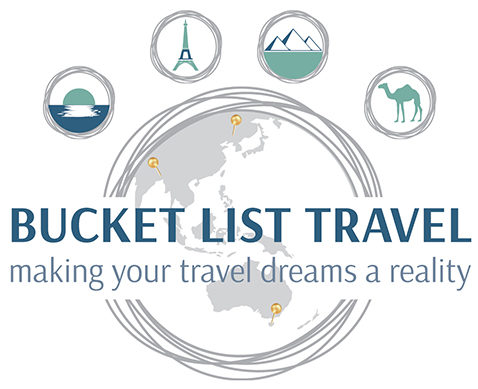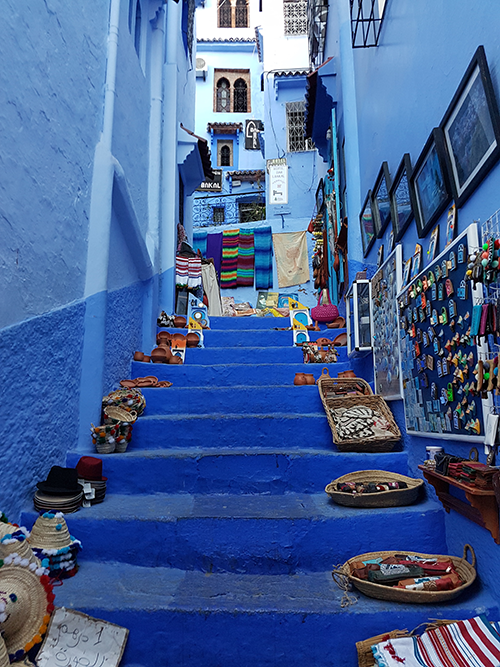All the flavours of Morocco are served up on this fulfilling culinary experience.
Aromatic tajines, red-earthed landscapes and limitless generosity define this adventure. This food tour of Morocco will give you an exciting, diverse and well-rounded experience of the delicious cuisine.
The culinary star of North Africa, Morocco is at the crossroads of many civilizations and her cuisine is a delicious blend of Arab, Berber, Moorish, French, Middle Eastern, Mediterranean, African, Iberian, and Jewish influences. With our guides at the helm, you will really get the flavour of this friendly, vibrant melting pot.
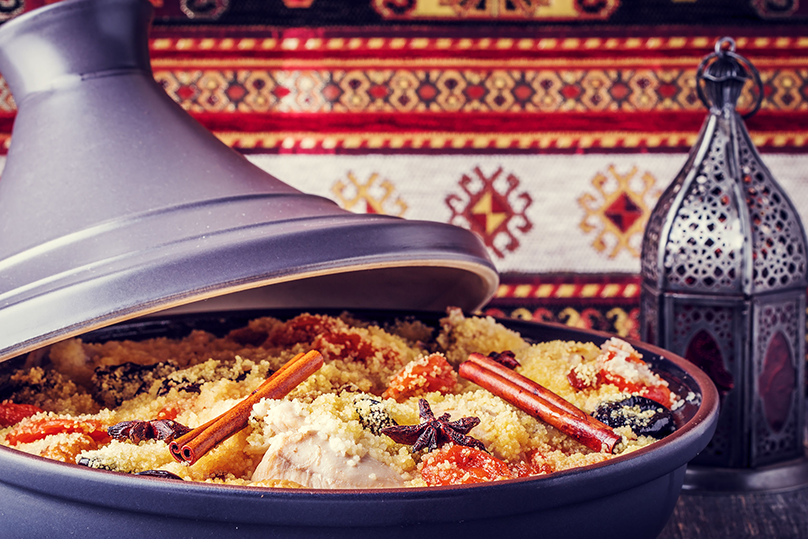
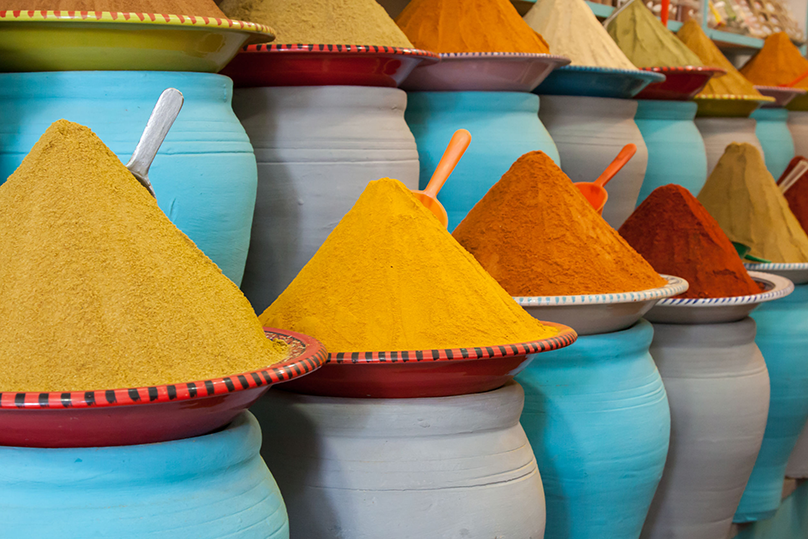
Moroccan cuisine on a plate
Moroccan cooking is enhanced with fruits, both dried and fresh. You’ll enjoy the dense sweets, rich with cinnamon, almond and fruit rolled in filo (warka) soaked in honey. You’ll gobble up the aromatic stew-like tagines, hearty, well-spiced soups, salads of raw or cooked vegetables in gorgeous olive oil dressings and the classic Berber couscous. You’ll discover the produce that makes up the building blocks of Moroccan cuisine – the grains, herbs and, of course, the spices – as you taste your way through the fresh food markets of ancient cities.
This food adventure will take you to the heart of Moroccan culture through an exploration of its tantalising cuisine.
Why you’ll love this trip
This food tour is Morocco in one 10-day serving. You’ll lie back on gorgeous rugs in the shadow of the ancient ruins of Volubilis and picnic on local ingredients, meander through the old medina of Fez and prepare the signature dish, pastilla. You’ll discover desert flavours on an overnight stay in the Sahara, partake in a hands-on cooking class in the High Atlas mountains, enjoy a home-cooked dinner in the blue city in the Rif Mountains, explore extraordinary Marrakech, the most African of Morocco’s cities, bargain at the souks and stay in stunning Moroccan riads.
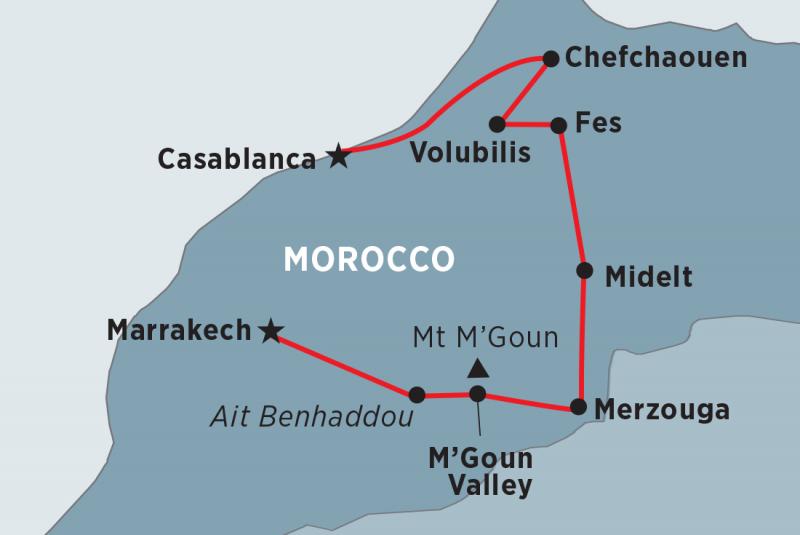
Is this trip right for you?
- Dietary restrictions may not be well understood. If you have dietary requirements, please let us know, as some meals and food activities are set in advance and may be difficult to adjust. Come with an open mind and open mouth, and you won’t be disappointed.
-
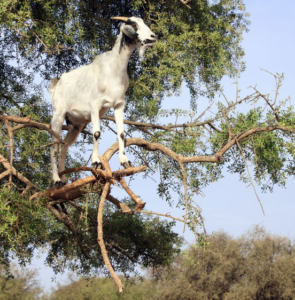
There are some long drives on this particular food tour of Morocco. These are excellent opportunities to appreciate the scenery, such as goats peering out from the branches of an Argan tree, one of the truly unique things you can only see in Morocco.
- We do some easy trekking, so bring the relevant footwear and clothing with you.
- The weather in Morocco can be extreme. Summer temperatures can be uncomfortably hot, so please consider carefully what time of year you travel. If you do travel in the warmer months, pack layers to cover you from the sun, bring the necessary sun protection and drink plenty of water.
- Although you shouldn’t expect any aggressive selling techniques in Morocco, please be aware that you may be approached by shop owners and street vendors offering their goods to you on regular occasions.
- The tourism industry is one of the main reasons why Moroccan goats are encouraged to climb trees. Farmers create income from curious tourists. Tour buses make regular stops, with most people jumping out to snap some pictures of the goats in exchange for a “tip” to the waiting farmers. If you try to sneakily take a photograph and avoid paying, there’s a high chance that you will be seen and “asked” for money.
The best time to visit Morocco
Being a country on the Mediterranean, Morocco actually has four distinct seasons and there is no bad time to visit. However, the best time would be during the country’s shoulder seasons – April and May or September to November – when the climate is less extreme and there are fewer tourists to contend with.
Autumn in Morocco is mild and dry, with average temperatures hovering around a pleasant 21 degrees Celsius. Spring’s May and April are considered rainy months, but it’s unlikely you’ll see too many wet days and the temperatures are between a minimum 12 degrees and a maximum 23 degrees Celsius.
Another thing to think about when planning your food tour of Morocco are local holidays and festivals. For example, Ramadan can be an interesting time to experience Morocco, but your travel plans could be affected. For instance, regular services such as restaurants or coffee bars may not be open during the daytime,
Getting there
New Zealand passport holders do not require a visa for stays in Morocco of up to 90 days, but you will be required to provide proof of return travel and funds to cover them for the duration of their visit.
Discover what delights there are to savour on the Morrocan food tour by reaching out to Michelle at Bucket List Travel
